TIME MANAGEMENT
TIME MANAGEMENT
BRIAN TRACY
 AMERICAN MANAGEMENT ASSOCIATION New York . Atlanta . Brussels . Chicago . Mexico City San Francisco . Shanghai . Tokyo . Toronto . Washington, D.C.
AMERICAN MANAGEMENT ASSOCIATION New York . Atlanta . Brussels . Chicago . Mexico City San Francisco . Shanghai . Tokyo . Toronto . Washington, D.C.
Bulk discounts available. For details visit:
www.amacombooks.org/go/specialsales
Or contact special sales:
Phone: 800-250-5308 / E-mail:
View all the AMACOM titles at: www.amacombooks.org
This publication is designed to provide accurate and authoritative information in regard to the subject matter covered. It is sold with the understanding that the publisher is not engaged in rendering legal, accounting, or other professional service. If legal advice or other expert assistance is required, the services of a competent professional person should be sought.
Library of Congress Cataloging-in-Publication Data
Tracy, Brian.
Time management / Brian Tracy.
pages cm
Includes index.
ISBN-13: 978-0-8144-3343-0
ISBN-10: 0-8144-3343-X
1. Time management. I. Title.
HD69.T54T727 2014
650.1'1dc23
2013037775
2013 Brian Tracy
All rights reserved.
Printed in the United States of America.
This publication may not be reproduced, stored in a retrieval system, or transmitted in whole or in part, in any form or by any means, electronic, mechanical, photocopying, recording, or otherwise, without the prior written permission of AMACOM, a division of American Management Association, 1601 Broadway, New York, NY 10019.
About AMA
American Management Association (www.amanet.org) is a world leader in talent development, advancing the skills of individuals to drive business success. Our mission is to support the goals of individuals and organizations through a complete range of products and services, including classroom and virtual seminars, webcasts, webinars, podcasts, conferences, corporate and government solutions, business books, and research. AMAs approach to improving performance combines experiential learninglearning through doingwith opportunities for ongoing professional growth at every step of ones career journey.
Printing number
10 9 8 7 6 5 4 3 2 1
CONTENTS
Introduction
Your ability to manage your time, as much as any other practice in your career as an executive, will determine your success or failure. Time is the one indispensable and irreplaceable resource of accomplishment. It is your most precious asset. It cannot be saved, nor can it be recovered once lost. Everything you have to do requires time, and the better you use your time, the more you will accomplish, and the greater will be your rewards.
Time management is essential for maximum health and personal effectiveness. The degree to which you feel in control of your time and your life is a major determinant of your level of inner peace, harmony, and mental well-being. A feeling of being out of control of your time is the major source of stress, anxiety, and depression. The better you can organize and control the critical events of your life, the better you will feel, moment to moment, the more energy you will have, the better you will sleep, and the more you will get done.
It is possible for you to gain two productive hours each working day, or even double your output and your productivity, by using the ideas and methods taught in this book. These techniques have proven successful for many thousands of executives in every field of endeavor, and they will prove successful for you, too, as long as you have what I call the four Ds.
The Four Ds of Effectiveness
The first D is desire: You must have an intense, burning desire to get your time under control and to achieve maximum effectiveness.
The second D is decisiveness: You must make a clear decision that you are going to practice good time management techniques until they become a habit.
The third D stands for determination: You must be willing to persist in the face of all temptations to the contrary until you have become an effective time manager. Your desire will reinforce your determination.
And finally, the most important key to success in life, the fourth D, is discipline: You must discipline yourself to make time management a lifelong practice. Effective discipline is the willingness to force yourself to pay the price, and to do what you know you should do, when you should do it, whether you feel like it or not. This is critical for success.
The payoff for becoming an excellent time manager is huge. It is the outwardly identifiable quality of a high performer vs. a low performer. All winners in life use their time well. All poor performers in life use their time poorly. One of the most important rules for success is simply to form good habits and make them your masters. In this book, you will learn how to form good habits and then let them form you.
What you will learn in this book are the twenty-one most important solutions to effective time management that almost all highly productive people have discovered and incorporated into their lives.
Remember that time management is really life management. Good time management and personal productivity begins by valuing your life, and every minute of that life.
Do What You Can, with What You Have, Right Where You Are
You should say to yourself, My life is precious and important, and I value every single minute and hour of it. I am going to use those hours properly so that I accomplish the most I can, in the time that I have.
The good news is that time management is a business skill, and all business skills are learnable. Time management is like riding a bicycle, typing on a keyboard, or playing a sport. It is made up of a series of methods, strategies, and techniques. It is a skill set that you can learn, practice, and master with determination and repetition.
ONE
The Psychology of Time Management
How you think and feel about yourself largely determines the quality of your life, and the emotional core of your personality is your self-esteem, defined as how much you like yourself.
Your self-esteem is largely determined by the way you use your life and time in the development of your full potential. Your self-esteem increases when you are working efficiently, and your self-esteem goes down when you are not.
The flip side of the coin of self-esteem is called self-efficacy, defined as the degree to which you feel you are competent, capable, and productive, able to solve your problems, do your work, and achieve your goals.
The more competent, capable, and productive you feel, the higher your self-esteem. The higher your self-esteem, the more productive and capable you will be. Each one supports and reinforces the other.
People who manage their time well feel positive, confident, and in charge of their lives.
The Law of Control
The psychology of time management is based on a simple principle called the Law of Control. This law says that you feel good about yourself to the degree to which you feel you are in control of your own life. This law also says that you feel negative about yourself to the degree to which you feel that you are not in control of your own life or work.
Psychologists refer to the difference between an internal locus of control, where you feel that you are the master of your own destiny, and an


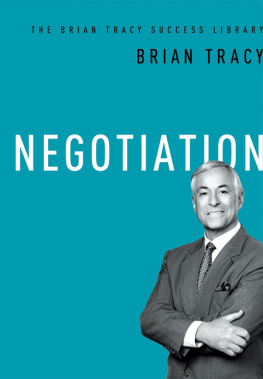
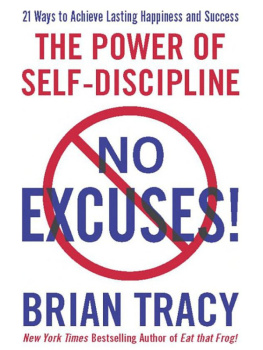

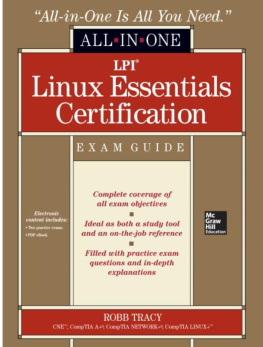

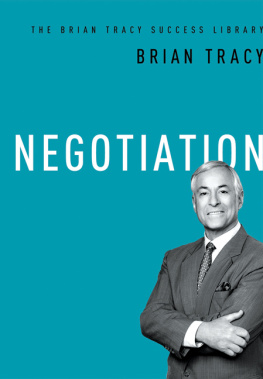



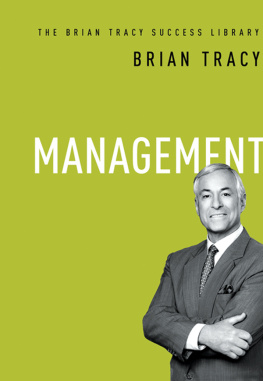

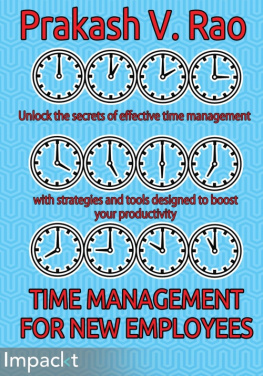
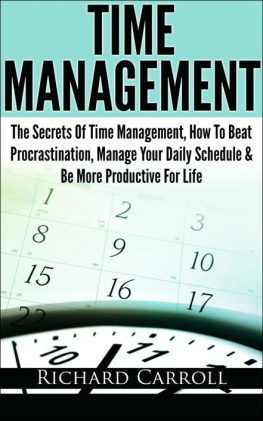

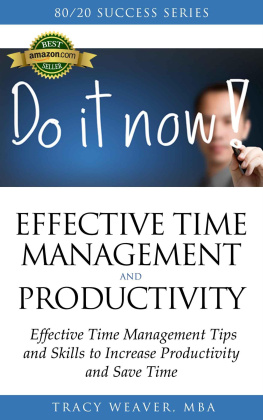
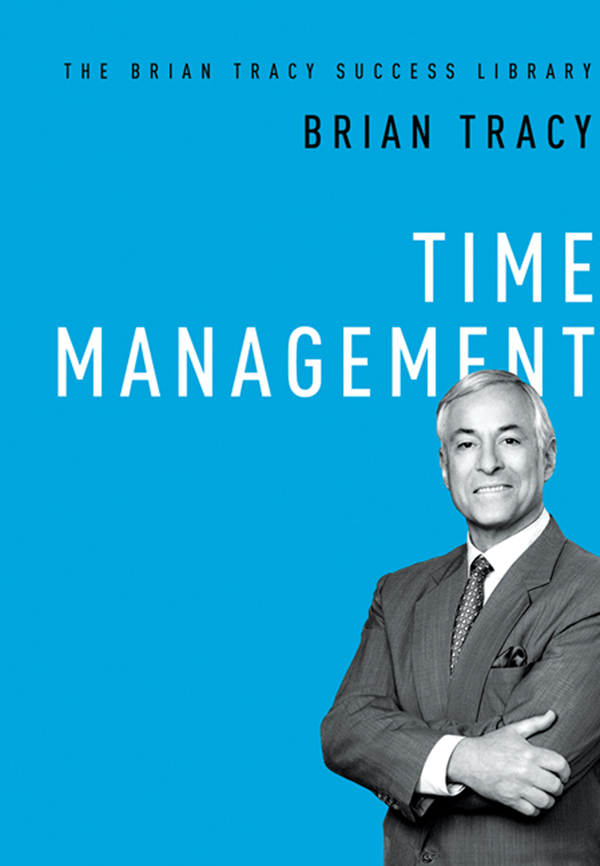
 AMERICAN MANAGEMENT ASSOCIATION New York . Atlanta . Brussels . Chicago . Mexico City San Francisco . Shanghai . Tokyo . Toronto . Washington, D.C.
AMERICAN MANAGEMENT ASSOCIATION New York . Atlanta . Brussels . Chicago . Mexico City San Francisco . Shanghai . Tokyo . Toronto . Washington, D.C.